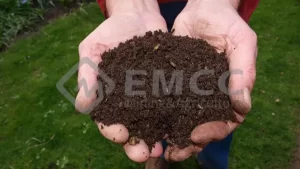 As more and more cities implement composting projects, waste management is undergoing a revolutionary change. Composting has become a key means to effectively reduce food waste and promote sustainable agricultural development. By converting kitchen waste and garden waste into organic fertilizer, composting not only improves soil health but also reduces methane emissions in landfills.
As more and more cities implement composting projects, waste management is undergoing a revolutionary change. Composting has become a key means to effectively reduce food waste and promote sustainable agricultural development. By converting kitchen waste and garden waste into organic fertilizer, composting not only improves soil health but also reduces methane emissions in landfills.
A large number of composting projects have begun to cooperate with local farms to provide nutrient-rich organic matter for orchards, vegetable plots and gardens. These composts not only enhance the soil’s water retention capacity, significantly increase crop yields, especially during droughts, but also reduce dependence on chemical fertilizers, bringing more environmentally friendly agricultural solutions.
In addition, composting, as one of the means to reduce carbon footprint, is widely supported by environmental organizations and agricultural communities by reducing the impact of food waste on the environment. Cooperation between governments and non-governmental organizations provides financial support for composting projects, promoting more regions to adopt this sustainable waste management method and further promote the development of the green economy.
